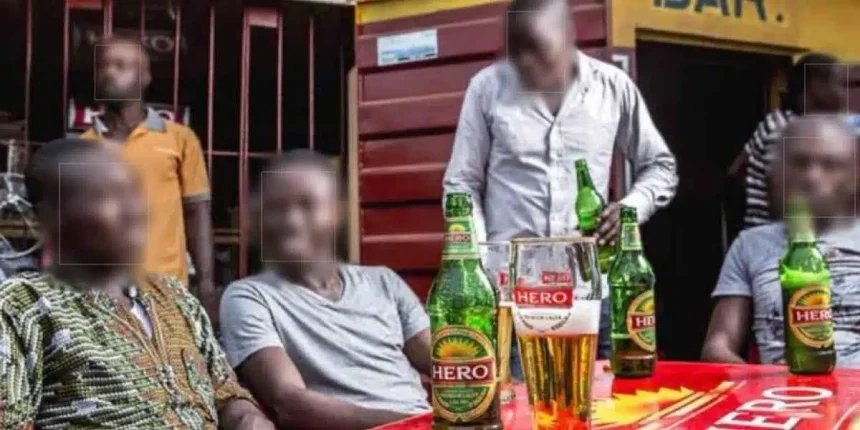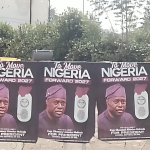The Ghana Drunkards Association, a well-known informal social group in the country, recently staged a peaceful protest over the rising prices of alcoholic beverages.
The group expressed concern that the increasing cost of liquor is making it difficult for average Ghanaians to unwind, especially in challenging economic times.
Led by its President, Moses Onyah, popularly known as “Dry Bone,” members marched through parts of Accra, calling on the government to intervene by reducing taxes on alcoholic products.
While this group has been around for a while, many consider the development surprising.
For this reason, Tribune Online takes a look at five key facts you should know about the Ghana Drunkards Association:
- Massive Membership Base
The association claims to have a staggering 6.6 million members across Ghana. These include both casual and regular drinkers, as well as bar owners and beverage sellers, making it one of the largest informal associations in the country. - Tech-Savvy with ‘E-Drink’ App
The group has launched an “E-Drink” app, enabling members to order alcohol online via Facebook or GPS-enabled delivery.
According to the association, the app aims to reduce alcohol-related accidents by discouraging drunk driving or walking under the influence.
- National Drinking Day
In 2021, the group boldly declared June 11 as National Drinking Day.
The aim, they said, was to promote responsible consumption and encourage people to relax after a stressful week.
They also argued that moderate drinking could have mental health benefits.
- Promotes Responsible Drinking
Contrary to stereotypes, the association has initiated Responsible Drinking Tours, particularly around festive seasons, to educate members on the dangers of excessive alcohol consumption—especially among those who drive.
- Takes Social and Political Stands
The group doesn’t shy away from activism. It has petitioned the Inspector General of Police to sanction officers caught drinking in uniform and has responded to public incidents involving alcohol with educational outreach programs.
Despite their comical branding and unconventional methods, the Ghana Drunkards Association continues to use satire and social mobilisation to draw attention to broader issues affecting informal communities in the country, including access, safety, and the rising cost of living.
“We are not just drunkards,” President Dry Bone said during the protest. “We are responsible citizens who demand fair treatment and affordable beverages.”
WATCH TOP VIDEOS FROM NIGERIAN TRIBUNE TV
- Relationship Hangout: Public vs Private Proposals – Which Truly Wins in Love?
- “No” Is a Complete Sentence: Why You Should Stop Feeling Guilty
- Relationship Hangout: Friendship Talk 2025 – How to Be a Good Friend & Big Questions on Friendship
- Police Overpower Armed Robbers in Ibadan After Fierce Struggle






